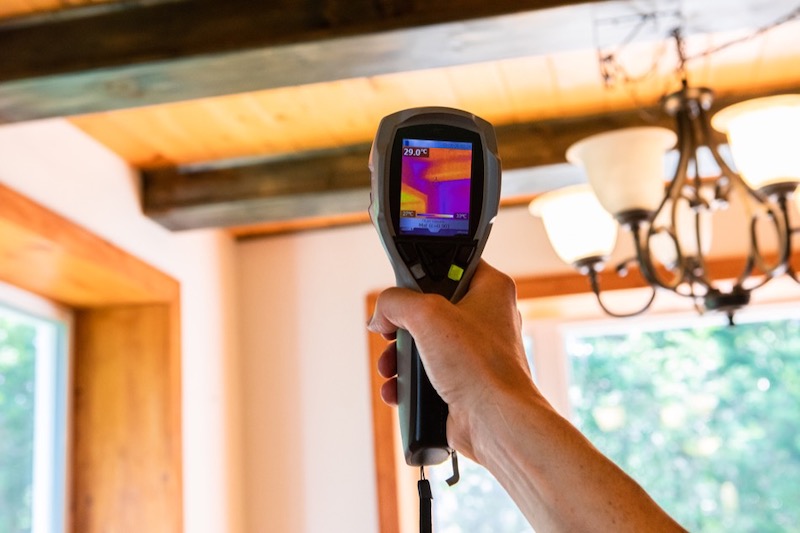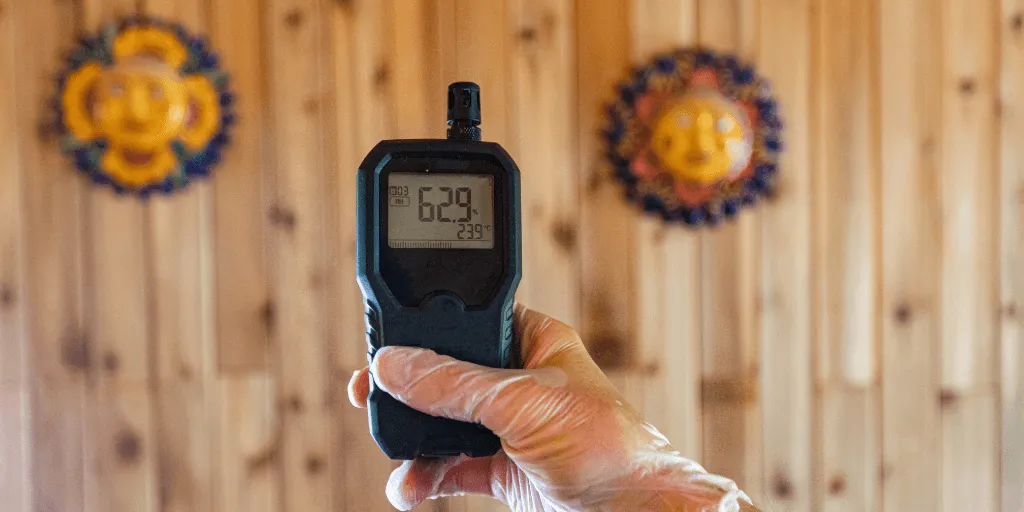Indoor air quality is an important factor that homeowners should keep in mind if they want to maintain a healthy home environment. Low indoor air quality is known to lead to health problems such as allergies, asthma, and other respiratory illnesses for the people living inside of it.
An indoor air quality test (IAQ) is used to calculate the quantity of pollutants present in your home’s atmosphere and identify any potential risks or hazards that may be present. This testing process helps you understand what needs to be done in order to improve the air quality of your home and protect your family’s wellbeing.
Click the following link if you’d like to find an HVAC company that can help you improve the indoor air quality in your home or business — https://imsheatingandair.com/.
Continue reading to learn more.
What is an indoor air quality test?
Indoor air quality tests are important as they can help you recognize and address sources of contamination in your home before they cause significant damage to your health or the health of your family.
Typically an IAQ test involves a sample being taken from inside the home during a specific period of time. This sample is then analyzed for the levels of particulate matter, carbon dioxide, volatile organic compounds (VOCs), nitrogen dioxide, ozone, lead, formaldehyde, and other common pollutants present in indoor air.
Once these readings are obtained, they are compared against established standards set by organizations such as OSHA or the EPA to determine if there are any serious issues that need to be addressed.
In some cases, an IAQ test may also include biological testing to measure bacterial spores, fungi, mold spores, and other microorganisms that can negatively affect air quality at home. Additional testing may include radon gas detection which detects radioactive elements released from soil or rock beneath the structure that contribute to low-level radiation when inhaled over long periods of time.
Your local health department may be able to provide more information on how you can obtain an indoor air quality test for your home so you can ensure you have clean and safe air to breathe all year round.

Why are indoor air quality tests important?
Indoor air quality tests are important for a variety of reasons. Poor indoor air quality can have long-lasting implications on the health and well-being of those living or working in a building. It can cause respiratory problems, headaches, nausea, irritation to the eyes, nose or throat and can even worsen existing conditions such as asthma or allergies.
The presence of airborne contaminants like mold spores, carbon monoxide, lead dust, asbestos fibers, formaldehyde and a range of other chemicals can be hazardous to our health if not dealt with appropriately.
Testing is especially important in buildings that are older or located in areas with higher levels of outdoor air pollution. These factors can affect the concentration of pollutants indoors due to poor ventilation and lack of proper maintenance. Additionally, studies have found that new buildings often contain volatile organic compounds (VOCs) from recently installed materials like furniture, carpeting and insulation which also need to be monitored for safety purposes.
Periodic indoor air quality testing is essential for detecting any potential problems before they become significant or unmanageable. Testing allows businesses to ensure their employees are working in a healthy environment as well as help property owners identify sources of contamination that need to be eliminated or reduced before they cause more harm.
This process includes checking for the presence of dust mites and other allergens while also determining levels of humidity and temperature which can affect indoor comfort significantly.
Ultimately it is important to test regularly in order to protect yourself and those around you from any adverse health effects caused by inadequate air quality standards inside your home or workplace.

What is an indoor air quality test? — Conclusion
In conclusion, indoor air quality tests are essential for detecting potential issues before they become more serious and unmanageable. These tests determine the levels of particulate matter, carbon dioxide, volatile organic compounds (VOCs), nitrogen dioxide, ozone, lead, formaldehyde and other common pollutants present in your home or workplace to ensure that you have clean and safe air to breathe all year round.
Additionally, biological testing may be included to detect bacterial spores, fungi mold spores and other microorganisms which can adversely affect air quality indoors. Regularly conducting an IAQ test is a great way to protect yourself from any negative health effects caused by inadequate air quality standards inside the building so don’t hesitate to get one done today!